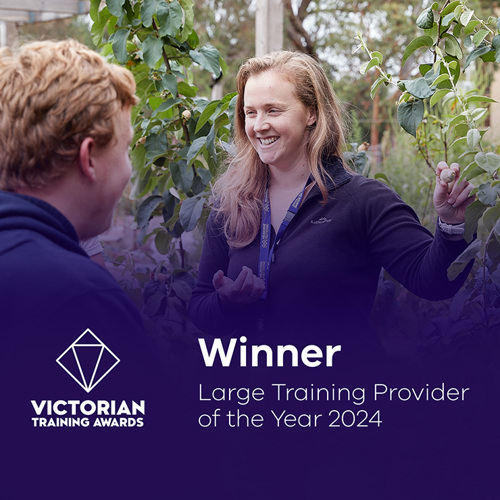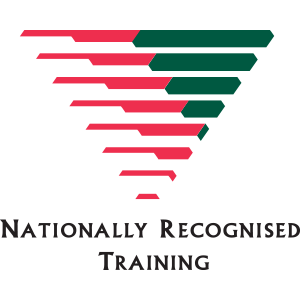Diploma of Music
Overview
1 year full time / 2 years part time
1 year
March, July
February, July
Choosing Your Focus in the Diploma of Music CUA50820 at Melbourne Polytechnic
We recognise the diverse interests of our students and strive to cater to each unique passion. That's why our Diploma of Music CUA50820 offers two distinct pathways: Music Performance and Music Production. When enrolling in the diploma, you have the flexibility to choose a focus that aligns best with your career aspirations and musical inclinations.
The Music Performance focus is for those who see themselves on stage, and explores live music, and instrument mastery.
In the Music Production focus get immersed in the technical aspects of music creation, from software proficiency to sound engineering.
MUSIC PERFORMANCE FOCUS
If you have experience in music performance, you will be well suited to strengthening your musical talents with this course, located in Melbourne, home to over 500 music venues.
The Performance focus provides one-on-one lessons with experienced industry professionals, and ensures you're prepared for any performance. You will have opportunities to perform, partner with peers, and establish important industry connections.
After completing your Performance-focused Diploma of Music CUA50820, career paths include roles as a solo artist, band member, music educator, arranger or director. For those seeking further education, our Advanced Diploma of Music CUA60520 (Performance) offers an extended study opportunity.

MUSIC PRODUCTION FOCUS
Immerse Yourself in a World of Digital Creation
Using Ableton as your primary instrument, lay down tracks, transform melodies into masterpieces and dive into the intricacies of composition and arranging.
At Melbourne Polytechnic, we believe in the power of collaboration. Engage in ensemble work, collaborate with like-minded peers, and hone your unique sound in individual projects.
Graduates of Melbourne Polytechnic's Diploma of Music CUA50820 emerge as multifaceted music producers. Whether you envision yourself as an electronic music artist, a dynamic music composer, or a revolutionary sound designer, this course is your stepping stone.
16 units are required to obtain this qualification. Unit selection depends on whether an you enrol with a performance focus or a production focus.
Frequently Asked Questions
Not at all. If you have minimal or no experience with music theory, don't worry! We'll start from the basics to get you up to speed.
Your choice depends on where your interest truly lies. Are you inclined towards the technical nuances of sound, collaborating with artists to fine-tune their musical vision?
Or does your heart beat for composing and bringing new music to life? If it's the latter, then the Diploma of Music CUA50820 with a music production focus may be a better fit. While you'll still get a taste of the technical aspects, you'll primarily immerse yourself in innovative music production techniques, producing a rich array of original music.
If your main focus is music performance, book an audition. Read the Audition FAQs.
If your main focus is music production, book an interview. You will be invited to share samples of your work, which could be your beats, chord arrangements, or previous recordings.
Our team will guide you on any specifics you might need during the interview or audition scheduling.
Melbourne Polytechnic stands out as a hub for aspiring musicians, offering a unique blend of expert industry training and a collaborative learning environment. You have access to access to great studios and production suites, instruments, production gear and microphones, including on weekends.
Beyond the music, our dedicated Wellbeing and Student Equity and Access Team are here to support every student's holistic well-being.
Here, you're not just learning music; you're joining a community that values excellence and comprehensive growth.
Upcoming info sessions
Have a chat with our highly experienced course advisors who can help you navigate your many career options.
Career Pathways
Where will the Diploma of Music CUA50820 take me?
With the diploma firmly under your belt, you can seek employment in the music industry as a solo artist, performer in bands, music teacher, arranger, producer or as an agent in the music industry.
- Music Arranger
- Music Performer
- Band Member
- Musician
- Music Composer
Study Pathways
On completion of this course you may continue your studies in our Advanced Diploma of Music CUA60520 (Performance), or work towards our Bachelor of Songwriting and Music Production.
Course Details
Delivery methods
- Performance venues
- Studio
- Electronic music lab
- Skills development activities in simulated work environments
How you will study
Each course has a dedicated learning method that is designed to let you thrive in your studies.
On-campus
Interactive learning in a face-to-face environment. Classes will be held at a Melbourne Polytechnic campus or partner institute. Visit the How You'll Study page for more information.
Class Schedule
32 weeks across 2 semesters.
Assessment Methods
Assessment includes: observation of students' performance, oral questioning, written activities, and projects/portfolios of student work.
Units of Study
The hours displayed are nominal, actual classroom hours delivered may differ. Please contact us for the latest student contact hours information.
| Code | Subject | Elective | Hours |
| CUACMP511 | Manage copyright arrangements | Core | 20 |
| CUAIND412 | Provide freelance services | Core | 40 |
| CUAIND512 | Enhance professional practice using creative arts industry knowledge | Core | 60 |
| CUAMCP411 | Develop techniques for arranging music | Elective | 45 |
| CUAMCP412 | Compose musical pieces | Elective | 35 |
| CUAMCP511 | Compose music using music technology | Elective | 60 |
| CUAMLT411 | Notate music for performance | Elective | 35 |
| CUAMLT413 | Analyse basic harmony functions | Elective | 55 |
| CUAMLT511 | Refine aural perception and memory skills | Elective | 60 |
| CUAMPF411 | Rehearse music for group performances | Elective | 85 |
| CUAMPF412 | Develop and apply stagecraft skills | Elective | 70 |
| CUAMPF416 | Perform music as a soloist | Elective | 70 |
| CUAMPF418 | Develop performance techniques on a second instrument | Elective | 40 |
| CUAMPF511 | Develop programs for performances | Elective | 70 |
| CUAMPF515 | Develop instrumental techniques and expand repertoire | Elective | 85 |
| CUAMWB401 | Develop and implement own self-care plan in the creative industries | Core | 50 |
| CUAPPM513 | Incorporate creative and technical needs into management processes | Elective | 150 |
| CUAPPR511 | Realise a body of creative work | Elective | 80 |
| CUAPPR616 | Extend expertise in a specialised art form to professional level | Elective | 120 |
| CUASOU417 | Edit sound | Elective | 65 |
| CUASOU419 | Mix recorded music | Elective | 50 |
More about Music at MP

Audition FAQ
Information about preparing for your music audition.
Audition Advice
Studios, Venues, Practice Rooms
The facilities you have access to as a music student at MP.
Music Facilities
Teacher Jack Pantazis
Learn from a passionate teacher with a life-long career in music.
Meet Jack
Student Ash Ravens
Read Ash's experience studying music and working in the industry.
Meet AshFees & Costs
| Government subsidised fee | Non-subsidised fee | |
|---|---|---|
| Tuition fee | $11700 | $16550 |
| Maximum annual amenities | $250 | $250 |
| Total payable | $11950 | $16800 |
| Per year | $19600 |
| Per semester | $9800 |
The student tuition fees as published are subject to change given individual circumstances at enrolment.
Displayed course fees are indicative only. There are many variables that impact the total amount of your full course costs including qualification for government subsidies, concessions or recognition of prior learning. Tuition fees do not include the cost of student amenities or material costs.
This training is delivered with Victorian and Commonwealth Government funding. Contact us to find out if you’re eligible for a Government subsidy.
Melbourne Polytechnic offers a range of payment options to help you pay your tuition fees, so you can get on with your studies.
Fees displayed are effective for new applications received on or after 1st of November. Tuition fees do not include textbooks, course materials or overseas student health insurance and visa fees.
After initial deposit, international students are able to pay tuition fees in installments, four times per year.
For more detailed information please read the International Student Fees.
Materials
Lists of required materials, books and timetables will be provided at course induction or class enrolment by the teaching department.Fees explained
The fees for those ineligible for a government-funded enrolment.
The cost of tuition for those eligible for government funding.
Additional expenses
The Student Services and Amenities Fee is charged at forty cents (40 cents) per student contact hour and is capped over a twelve (12) month period, effective from the enrolment date, to:
- $250 for full fee-paying students; and
- $175 for concession-paying students studying Certificate I, II, III, or IV.
Amenities fees are used to improve non-academic services including libraries, counselling services, student support, and recreational activities.
Book your interview or audition
Requirements
- Year 12 with VCE Music: Solo/Group and/or industry experience. Note: this is not a compulsory requirement
- Certificate IV in Music Industry CUA40920 (Performance) or equivalent. Note: this is not a compulsory requirement
- apply through VTAC or directly to Melbourne Polytechnic
- attend an audition/interview. Auditions are conducted either remotely via Zoom or phone, or in-person at the Fairfield Campus, and are open to all applicants (local, interstate, overseas). For further information email performingarts@melbournepolytechnic.edu.au.
- attend an Information Session. Note: this is not a compulsory requirement
- Academic: Australian Year 12 equivalency.
- English: Academic IELTS 6.0 overall, Pearson PTE Academic 50 overall, or Melbourne Polytechnic recognised equivalency.
- Audition/Interview: Attend an audition/interview. Auditions are conducted either remotely via Zoom, or in-person at the Fairfield Campus, and are open to all applicants (local, interstate, overseas). For further information email performingarts@melbournepolytechnic.edu.au.
Next Steps
The first step to enrolling is completing the application short form from the Apply Now page.
After you complete that form we will send you an email with a link to an application form webpage. If you don’t receive the email, check your spam and junk folders.
Complete the application form on the application form webpage.
You will be required to complete an online literacy and numeracy assessment.
We’ll ask you to attend an interview to ensure that this is the right course for you.
Once you are ready to enrol, you will be invited to attend an enrolment appointment over the phone or on campus.
For Diplomas and Advanced Diplomas, you may be eligible for a VET Student Loan. Read more about them here.
If you need assistance with your application and the next steps, you can contact one of our Education and Course Advisors on 1300 635 276 or follow a step-by-step guide to enrolling for vocational education local students.
When we receive your application, the International Office will be in contact with you shortly to discuss your application and provide you additional instructions.
If you'd like to speak to one of our International Office staff directly, call 1300 635 276

We're Victoria's Large Training Provider of the Year
Study with Melbourne Polytechnic, proud winner of Victoria’s 2024 Large Training Provider of the Year! Recognised for our innovative programs, industry partnerships and commitment to student success, we’re here to help you build the skills for a thriving future.
Recognising Organisations

Nationally Recognised Training This course is government accredited and has national recognition.
Local student means; you are an Australian citizen or permanent resident, a New Zealand citizen or a permanent humanitarian visa holder.